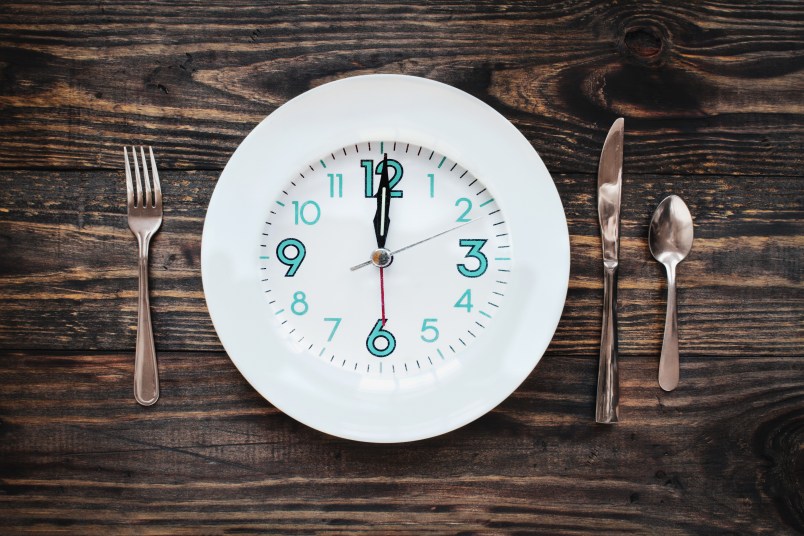When You Eat Could Be The Key to Finally Losing Weight

If you’re over 50 with a sluggish metabolism and have tried every diet out there to no avail, you’re not alone. But as it turns out, the hidden key to reactivating your metabolic processes and achieving your goal weight after a certain age might not just be about what you’re eating, but when you’re eating it.
Our circadian rhythm is our body’s internal clock which coincides with the cycles of nature. The idea behind it is that our bodies work best when we start using energy when the sun rises and begin the rest and digest phase in the evening when the sun is setting. Scientists propose that each of our organs and hormonal systems is governed by this circadian rhythm, so establishing a routine where the body is working and resting at the same times each day, can help achieve ultimate health and ideal weight.
Research on the circadian rhythm suggest that our body’s ability to use food for energy and rest and digest properly are controlled by the body clock. When our bodies aren’t using food effectively, we end up storing unwanted fat and excess weight because the body is being overloaded and overworked. When we can’t properly rest and digest, our hormones (like cortisol) go haywire, and we become locked into patterns of heightened stress, unstable blood sugar (which means unstable energy levels), and unhealthy elimination — all which keep stubborn pounds on. So how can we merge our habits with the body’s natural clock?
While life can get a little hectic sometimes, the most important element of syncing with your body’s circadian rhythm is establishing a routine. Namely, getting to bed, waking up, and having your meals at the same time every day. In doing so, your organs get used to working and resting at the same times, so they never become overly taxed or stressed. And once everything is on a set schedule, your hormones don’t have to compensate for extra stress and there is no longer a reason for the body to hang on to fat cells. It’s that simple!
Besides getting to bed on time, researcher suggests that time-restricted eating keeps the body clock functioning properly and wards off fat storage. The idea is that there is a small, given window of eating (between eight and 12 hours), and a given period of resting and digesting (or fasting) so your organs have the proper amount of time to process and eliminate what you’ve eaten.
Since sleep is when most of our rest-and-digest time occurs, it’s helpful to stop eating at least three hours before you go to sleep. And since you’re using most of your energy during the day, try to have a good breakfast loaded with healthy fats within 90 minutes of waking to keep your blood sugar and energy levels stable. So a day of time-restricted eating might look something like waking up at 6 a.m. and having breakfast around 7 a.m., then having your last meal around 7 p.m. before bed at 10 p.m. Doesn’t seem so hard, does it?
Just as well, make sure that you’re staying hydrated so that your organs have what they need to properly assimilate nutrients and flush waste, then watch as the weight falls off — effortlessly!
More From Woman’s World
How to Maintain Weight Loss Without Depriving Yourself
The 12-Minute Exercise That Keeps Helen Mirren Fit at 73
A High-Protein Diet Helps Overweight Seniors Shed Pounds Safely, Study Suggests












